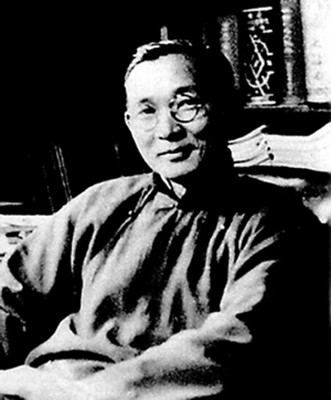Third, half of the art of making tea lies in getting good water with a keen edge; mountain spring water comes first, river water second, and well water third; water from the tap, if coming from dams, being essentially mountain water and satisfactory.
第三,烹茶的艺术一半在于择水,山泉为上,河水次之,井水更次,水槽之水如来自堤堰, 因为本属山泉,所以很可用得;
Fourth, for the appreciation of rare cups, one must have quiet friends and not too many of them at one time.
第四,客不可多,且须文雅之人,方能鉴赏杯壶之美;

Fifth, the proper color of tea in general is a pale golden yellow, and all dark red tea must be taken with milk or lemon or peppermint, or anything to cover up its awful sharp taste.
第五,茶的正色清中带微黄,过浓的红茶即不能不另加牛奶、拧橡、薄荷或他物以调和其苦味;
Sixth, the best tea has a "return flavor" (hueiwei), which is felt about half a minute after drinking and after its chemical elements have had time to act on the salivary glands.
第六,好茶必有回味,大概在饮茶半分钟后,当其化学成分和津液发生作用时,即能觉出;
Seven, tea must be freshly made and drunk immediately, and if good tea is expected, it should not be allowed to stand in the pot for too long, when the infusion has gone too far.
第七,茶须现泡现饮,泡在壶中稍稍过候,即会失味;
Eight, it must be made with water just brought up to a boil.
第八,泡茶必须用刚沸之水;
Nine, all adulterants are taboo, although individual differences may be allowed for people who prefer a slight mixture of some foreign flavor (e.g., jasmine, or cassia).
第九,一切可以混杂真味的香料,须一概摒除,至多只可略加些桂皮或玳玳花,以合有些爱好者的口味而已;













